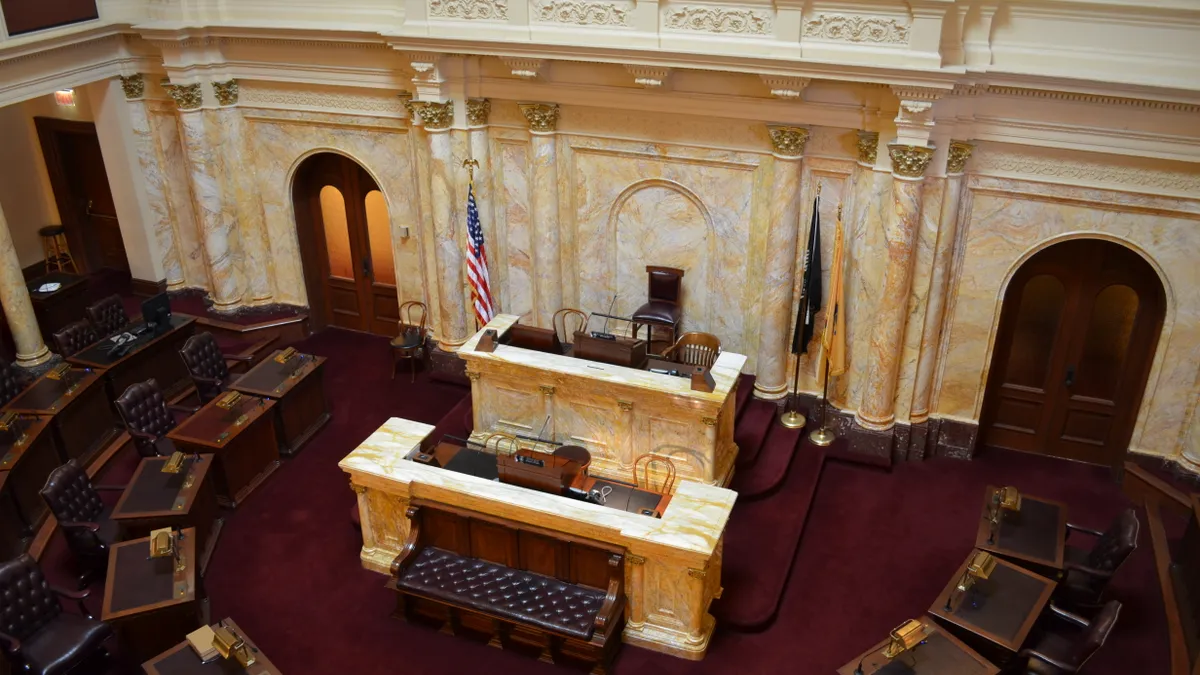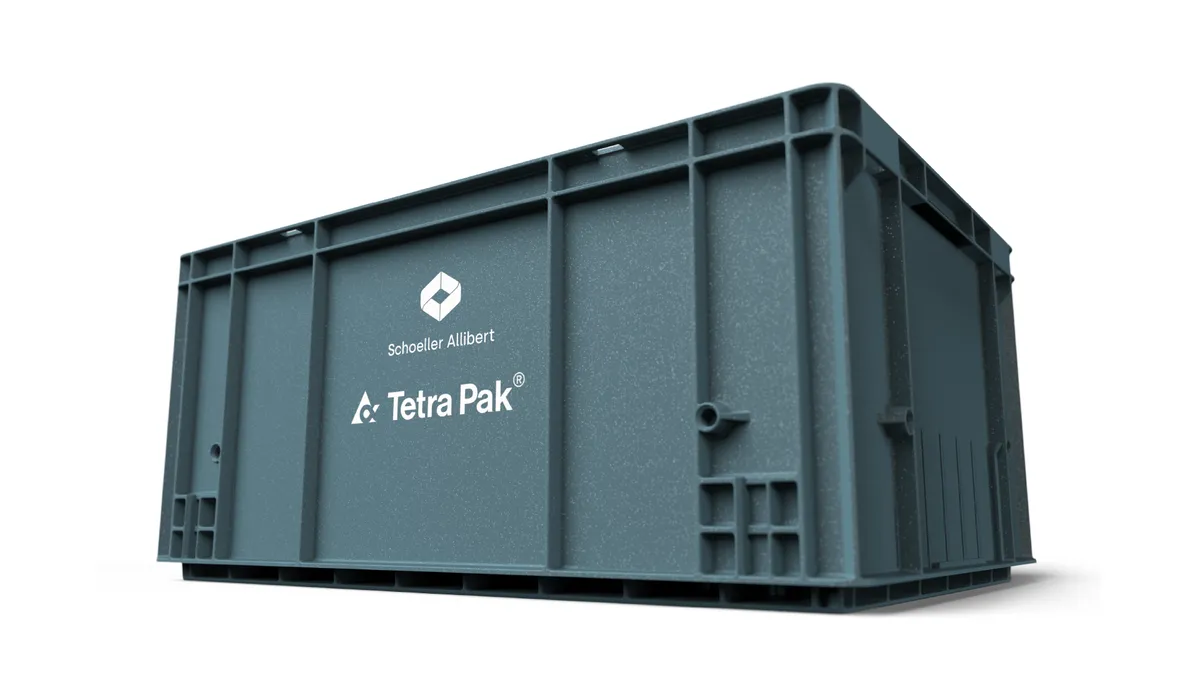UPDATE: Jan. 22, 2019: S3939, a bill to establish a Recycling Market Development Council, has been signed into law.
The New Jersey legislature failed to reach an agreement on multiple waste and recycling bills before the end of its two-year legislative session yesterday, but momentum is expected to continue.
Among the most high-profile items was an organics diversion requirement for select large generators. The Assembly passed the bill (A3726) last month, but it never came up for a vote in the Senate. Sen. Bob Smith told Politico he has a commitment from Senate President Stephen Sweeney that a new version will be taken up shortly after a Jan. 30 committee hearing.
Another major bill (S2776) passed the Senate on Monday, but failed to advance in the Assembly. It would have phased in bans on single-use plastic and paper bags, as well as expanded polystyrene foam food containers, and required straws only be given out upon request. Smith has also pledged to reintroduce a new version of that bill this month.
Both chambers did pass two notable recycling bills on Monday that now await Gov. Phil Murphy's signature. The first (S3939) would establish a Recycling Market Development Council to assess state needs and recommend solutions. The second (A4382) would establish a state stewardship program for architectural paint.
Given the session deadline, multiple bills appear to have run out of time to resolve political disagreements – some of which were complicated by late-stage amendments – and must now be introduced anew. Despite these partial results, waste and recycling topics appear to be gaining momentum as municipalities throughout the state struggle with rising costs.
Those concerns are best evidenced by the passage of S3939, which was spurred by a committee hearing last summer to address local recycling issues. Local governments in New Jersey cannot consider canceling their recycling programs due to state requirements – unlike in some other parts of the country – but are still faced with the same cost pressures. The bill mirrors similar legislation passed recently in states such as California and Washington to focus more on market development.
If the bill is signed, Murphy will be expected to appoint members to the new council within 60 days, who will have one year to prepare a report. In addition to assessing existing markets for recyclable materials, the council will also be asked to explore a range of topics such as contamination reduction, local market development (including possible incentives for paper mills), procurement standards for recycled content and other relevant policy recommendations.
The Association of New Jersey Recyclers (ANJR), which has long been advocating for a revival of the state's solid waste advisory committee, formed its own market development committee last year to kickstart discussions. S3939 stipulates that ANJR will be represented on this new state council. Executive Director Marie Kruzan told Waste Dive she sees opportunity for the two groups to work together on finding solutions that could wind up in the recommendation report.
“I’m hoping that what it comes out with is defining tangible things we can do," she said. Kruzan noted some of this won't require new laws that often take years to get passed through the legislature, which is important because ANJR sees a need for the state to be giving more prompt guidance to local governments. "It’s a financial nightmare right now for them,” she said.
Kruzan also noted that a paint stewardship program could help local recycling efforts too, by freeing up an estimated $1.5 million in funds that counties are currently using to handle the material. Following recent approval in New York, New Jersey would become the eleventh state (plus Washington, D.C.) to establish such a program.
As for the stalled efforts on packaging and organics, the upcoming political calculations are far less certain. While some form of regulations now exist for bags in eight states, and for expanded polystyrene foam in three, the issue remains highly charged. New Jersey's proposal had been pitched as among the toughest in the country, attracting significant lobbying attention from a variety of opponents. Murphy also vetoed a 2018 bill he said didn't go far enough, adding pressure to the discussions.
The organics bill, which would have applied to select large generators within 25 miles of an authorized recycling facility, has faced its own opposition for more locally-specific reasons. Murphy vetoed a prior version last year over language that would have allowed incinerators and landfills with gas-to-energy systems to be counted as authorized facilities. None of the other six states with various forms of organics diversion requirements include such language. New Jersey's most recent version, which was set to be paired with a two-year exemption for hospitals, did not include those details.
While proponents of the landfill gas-to-energy qualification previously said they hoped to see this latest version fizzle out, the New Jersey Composting Council was among those advocating for it strongly. President Jairo Gonzalez told Waste Dive the group is "disappointed the food waste bill, A3726, did not pass the Senate as expected this past Monday" and will continue fighting for the policy.
The New Jersey legislature will begin its 2020-2021 session later this month, with numerous waste and recycling bills expected to be introduced.























